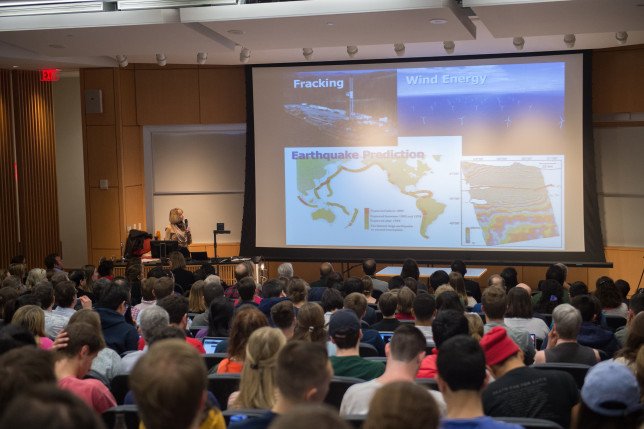
On Friday, April 15, Dr. Marcia McNutt presented the annual Geoffrey O. Seltzer Lecture & Norma Slepecky Lecture titled “Climate Intervention: Promise and Peril.” This special event was co-hosted by the Women in Science and Engineering (WiSE) program and the Department of Earth Sciences in the College of Arts and Sciences. Preceding her presentation, the Norma Slepecky Research Prize Award Ceremony recognized the research accomplishments of two undergraduate female students from the biology and physics departments. Marcia McNutt is a well-known geophysicist and currently the first female editor-in-chief of Science. She will also be the first woman to lead the National Academy of Sciences for her six-year term beginning on July 1st.
Dr. McNutt’s presentation covered what is known about climate change and explored the government’s response options. She focused on the polarizing topic of intervention through geoengineering of the earth’s climate. She thoroughly went through the current methods of climate intervention and discussed their benefits and drawbacks. Overall the presentation seemed to hinge upon the moral hazards of intervention and how relying on intervention may lead scientists and policy makers to disengage from mitigation and adaptation efforts. However, we should still proceed with research on climate intervention and “the government should maximize benefits of research [on climate intervention] while minimizing the risks,” stated McNutt. The bottom line of McNutt’s message was that the government is stalling mitigation efforts, not serious about adaptation, CO2 removal is too slow of a processes, and that certain intervention methods, such as albedo modification, should not be the answer.
News submitted by Chilisa Shorten, Caitlin Eger, and Tim Stagnitta